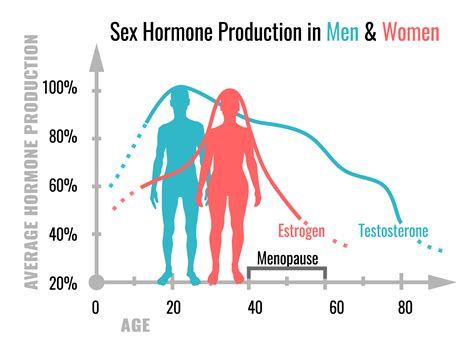Intro
Discover the common causes of canker sores, including stress, poor diet, and oral trauma, and learn how to prevent mouth ulcers and mouth sores with these 5 ways canker sores happen, exploring triggers and remedies for oral health.
Canker sores, also known as aphthous ulcers, are small, shallow lesions that develop on the soft tissues in the mouth, such as the tongue, inner cheeks, and lips. They can be painful and uncomfortable, making everyday activities like eating and talking difficult. Canker sores are a common problem that affects millions of people worldwide, and they can occur at any age. Despite their prevalence, the exact cause of canker sores is still not fully understood, but research has identified several factors that contribute to their development.
Canker sores can be triggered by a combination of factors, including genetic predisposition, hormonal changes, stress, and certain nutritional deficiencies. Some people may experience canker sores frequently, while others may only get them occasionally. In some cases, canker sores can be a symptom of an underlying health condition, such as a weakened immune system or a gastrointestinal disorder. Understanding the possible causes of canker sores can help individuals take preventive measures and seek proper treatment when needed.
The development of canker sores is a complex process that involves the interplay of multiple factors. While the exact mechanisms are not yet fully understood, research suggests that canker sores are the result of an abnormal immune response, which leads to the formation of ulcers on the mucous membranes in the mouth. In this article, we will explore the possible causes of canker sores, their symptoms, and treatment options. We will also discuss ways to prevent canker sores and promote oral health.
Genetic Predisposition and Canker Sores

How Genetic Predisposition Contributes to Canker Sores
Genetic predisposition can contribute to the development of canker sores in several ways. For example, some genetic variants may affect the functioning of the immune system, leading to an abnormal response to environmental triggers. Other genetic variants may influence the production of certain proteins that are involved in the healing process, making it more difficult for the body to repair damaged tissues. Additionally, genetic predisposition can affect the levels of certain hormones and neurotransmitters that play a role in the development of canker sores.Hormonal Changes and Canker Sores

The Role of Hormonal Changes in Canker Sores
Hormonal changes can play a significant role in the development of canker sores. For example, the drop in estrogen levels during menstruation can trigger canker sores in some women. Similarly, the hormonal changes that occur during pregnancy can increase the risk of developing canker sores. Additionally, hormonal changes can affect the levels of certain neurotransmitters, such as serotonin, which can contribute to the development of canker sores.Stress and Canker Sores

How Stress Contributes to Canker Sores
Stress can contribute to the development of canker sores in several ways. For example, stress can lead to a decrease in the production of saliva, which can make the mouth more susceptible to bacterial and viral infections. Additionally, stress can affect the levels of certain hormones and neurotransmitters, such as serotonin, which can contribute to the development of canker sores. Furthermore, stress can lead to poor sleep habits, which can weaken the immune system and increase the risk of developing canker sores.Nutritional Deficiencies and Canker Sores

The Role of Nutritional Deficiencies in Canker Sores
Nutritional deficiencies can play a significant role in the development of canker sores. For example, a deficiency in vitamin B12 can lead to a decrease in the production of red blood cells, which can increase the risk of developing canker sores. Similarly, a deficiency in iron can lead to a decrease in the production of hemoglobin, which can increase the risk of developing canker sores. Additionally, a diet that is lacking in essential nutrients can lead to a weakened immune system, making it more susceptible to environmental triggers.Oral Health and Canker Sores

The Importance of Oral Health in Preventing Canker Sores
Good oral health is crucial for preventing canker sores. For example, brushing and flossing regularly can help remove bacteria and other microorganisms that can trigger canker sores. Additionally, regular dental check-ups can help identify and treat any underlying oral health issues that may be contributing to canker sores. Furthermore, good oral health can help boost the immune system, making it more resistant to environmental triggers.What are the symptoms of canker sores?
+The symptoms of canker sores include small, shallow lesions on the soft tissues in the mouth, pain and discomfort, and difficulty eating and talking.
How are canker sores treated?
+Canker sores can be treated with over-the-counter medications, such as topical anesthetics and anti-inflammatory agents. In some cases, prescription medications may be necessary.
Can canker sores be prevented?
+Yes, canker sores can be prevented by maintaining good oral health, avoiding triggers such as stress and certain foods, and getting regular dental check-ups.
In conclusion, canker sores are a common problem that can be caused by a combination of genetic, hormonal, and environmental factors. Understanding the possible causes of canker sores can help individuals take preventive measures and seek proper treatment when needed. By maintaining good oral health, avoiding triggers, and getting regular dental check-ups, individuals can reduce their risk of developing canker sores. If you have any questions or concerns about canker sores, we encourage you to share your thoughts and experiences in the comments section below. Additionally, if you found this article helpful, please share it with others who may be experiencing similar issues.
